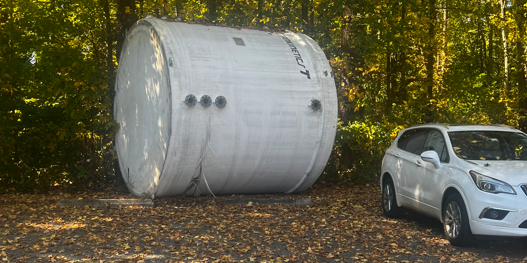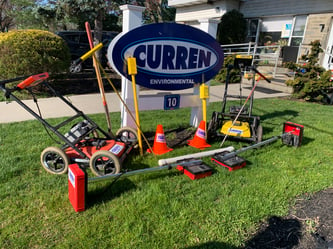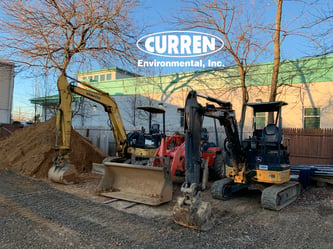Phase I is the foundation of due diligence when buying a property. Phase I environmental audits are so important for purchasers of commercial real estate. Environmental regulation places the burden of environmental cleanup on a property owner. If contamination occurred at a property 40 years ago and 5 owners ago, regardless of who owned the property in the past, the current property owner is the Responsible Party for the cleanup.
Short story, a professional firm, was closed over a weekend. When employees returned on Monday, they found a 14,000-gallon tank in their parking lot. The tank was dumped there over the weekend. This dumping was reported to the police and security cameras caught the entire process, unfortunately, the cameras could not decipher the license plate. The bottom line the property owner had to pay to properly dispose of the dumped tank.

That said, how do you know you are getting the best Phase I?
The environmental company should express that the Phase I can be completed within 3 weeks on average. Longer time frames would occur if there are government records (environmental reports at the State) that must be reviewed which can take three (3) more weeks to access. You, as the client, need to be told that Phase I may not be able to be completed as fast as you would like, which many environmental consultants do not want to address.
Quick Story
Environmental company out of Buffalo, NY, did a Phase I at a property in Southern, NJ for an SBA loan. Timing was mission critical, Phase I report was completed but it had a large data gap, as their recommendation below states:
Recommendations
Additional investigation is warranted to assess the on-site subsurface conditions due to the potential for on-site USTs and long term automotive repair, and should include the area of the floor drain/sump discharge and former in-ground lifts. A review of the 2016 NJDEP Case may help reduce the scope of work. Nevertheless, if investigation identifies a concern, further investigation/remedial work may be required.
Reading between the lines here the consultant knew there were reports with NJDEP but did not review them as they had to complete the Phase I in a short time frame. Fact, the Phase I was not complete and should not have been issued until the State files were reviewed. Now the consultant wants more money to review files that should have been reviewed as part of the Phase I. This is very common and wrong on many levels.
Your takeaway should be that you have to be provided realistic time frames to complete the Phase I.
It is estimated 70% of Phase I's require some form of a Phase II. Now understand that while a Phase I could be classified as white collar, a Phase II will include an aspect of blue-collar work. Most environmental consultant do not staff people or equipment necessary to perform a Phase II. Many Phase I customers end up getting hit with the markup from subcontractors that consultants utilize for the Phase I. You also get wacked with dealing with a 3rd party schedule.
Quick Story
Curren completed a Phase I for a business and property being sold. Phase I found contamination, buyers bought the site and one of the partners had a friend that worked at another environmental company, that took over the management of the contamination post purchase. The rub was the friend's company, owned no equipment and subcontracted everything and they had fallen into and out of bankruptcy several years ago and had a long list of vendors they never paid. Curren Environmental got called back to supply equipment for the investigation and remediation of the site, only Curren couldn't extend credit to the environmental company due to their prior bankruptcy. The buyer had to pay for all our work which the partners questioned why they switched companies in the first place. I think their biggest concern was the financial health of the company they hired.
The lesson here is hiring a company that covers tasks of Phase I, II & III, can make your project smoother.


3 Ask the consultant to Predict Your Future
- When you hire a company for environmental you want experience. The more you know the better you are at evaluating risk.
- Buying a farm = GPR for tanks, past farmer dumping and pesticide contamination.
- Buying a gas station = former tanks
- Buying a strip mall = any past tenants that could cause contamination?
- Industrial Land = What operated there? Manufacture companies and waste generation.
- Buying land to redevelop = Any off-site contamination concerns that could affect your development
- Known Contaminated Site = what has been done and how viable is owner of value of land vs contamination
If you give us the site address and some prior history, the crystal ball can go to work to prep you for what could be in store for you. This is often bad news and potential negative issues that could affect the transaction, but topics that you should be aware of during your due diligence. This may even deter you from proceeding with the purchase.
Expert Environmental Advice for over 25 Years
856-858-9509

